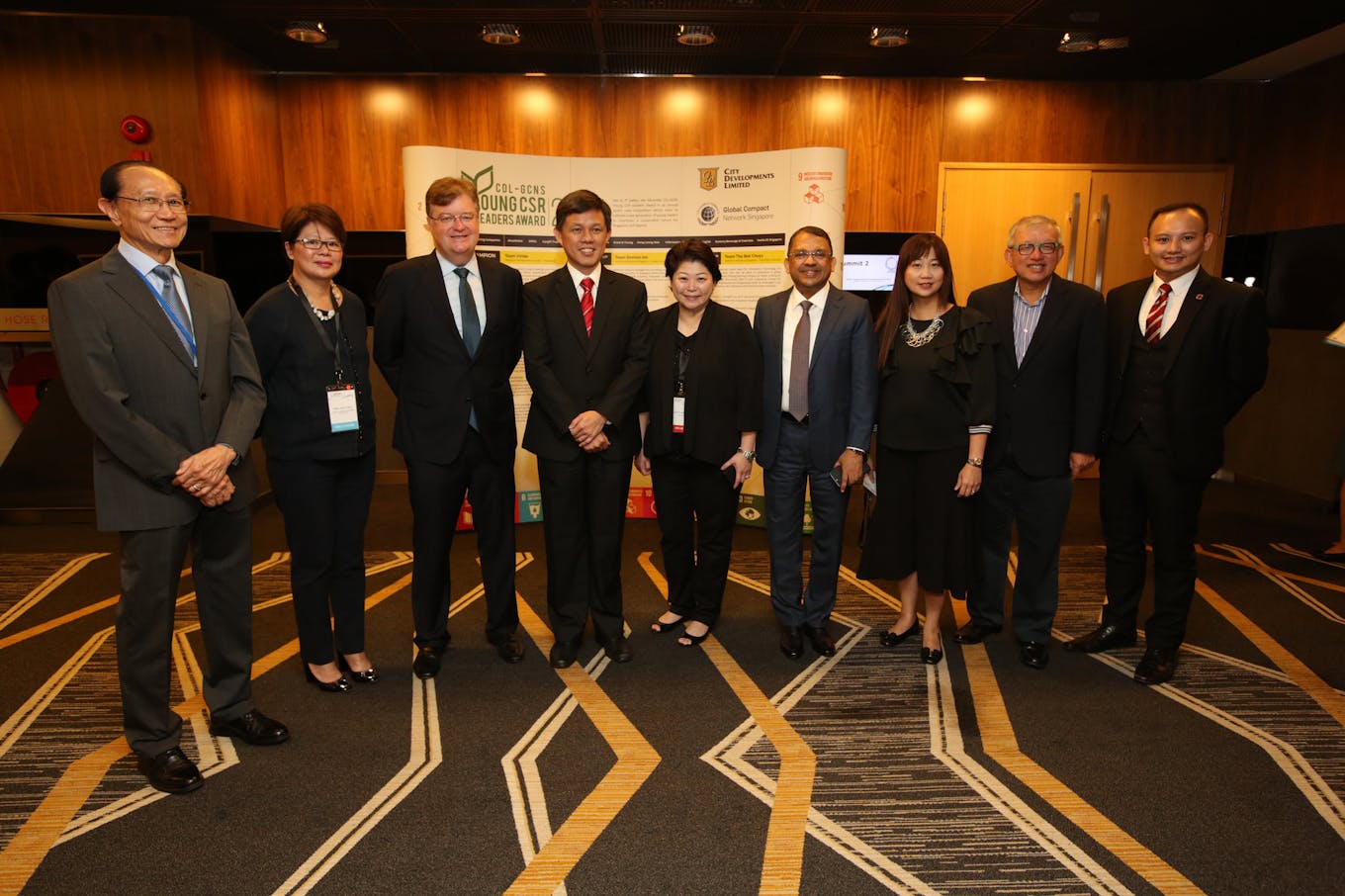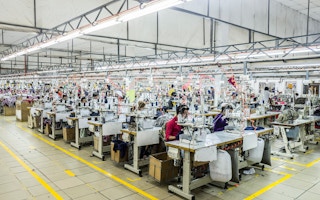The term “human rights” may have reached the end of its lifespan, it was suggested at this year’s Global Compact Network Singapore Summit on Tuesday.
Instead, progressive companies are committing to specific issues such as gender equality, children’s rights and water conservation.
During a panel discussion on the intersection between human rights and business, sustainability consultant Ken Hickson proposed that it was a “mistake in this day and age” to use the term human rights.
He said: “Business is taking the lead in talking about specific issues like child labour and gender equality. Wouldn’t we be better off, certainly in Asia and Southeast Asia, to forget the terminology of human rights and focus on specific areas like gender, race, inclusiveness and equality?”
The unequivocal answer from representatives of multinational companies on the panel was yes.
“
How can workers’ rights be protected under new business models; how do we ensure that civil liberties are balanced with the needs of society, given new information technology and social networks; how can we ensure that technology helps us to reduce inequality rather than increase it?
Barry Desker, Singapore’s representative, ASEAN Intergovernmental Commission on Human Rights, on how ASEAN governments are becoming sensitised to the need for human rights and responsible business
Ikea Southeast Asia’s head of sustainability, Lee Hui Mien, said that the Swedish furniture giant tends to talk about social issues in terms of “fairness”, while Ericsson Telecommunications’ vice president, head of marketing and communications, South East Asia & Oceania, Sonia Aplin, told the 400-strong audience that the firm approaches human rights around specific issues.
“Normally we talk about diversity, gender equality, inclusion, child labour and so on—that’s how we frame it in the business context,” she elaborated.
The two-day summit, organised by the Global Compact Network Singapore (GCNS), gathered leaders from the public and private sectors to discuss the theme of “Better businesses together for the future economy”.
The ninth edition of the summit saw the signing of a memorandum of understanding between GCNS and the National Voluntary & Philanthropy Centre to establish a national framework to guide companies on sustainability and donations, as well as the prize-giving ceremony for the CDL-GCNS Young CSR Leaders Award, now in its seventh year.
In contrast to the private sector, which decreasingly uses the term “human rights”, Southeast Asian governments have only started talking about human rights over the last decade after years of adhering to a policy of non-intervention and non-interference, according to Singapore’s representative to the ASEAN Intergovernmental Commission on Human Rights, Barry Desker.
He said governments have been “sensitised” to the private sector’s duty to be socially responsible in the face of the rapid changes to societal values and new challenges to human rights. These pose new questions to the region’s authorities: “How can workers’ rights be protected under new business models; how do we ensure that civil liberties are balanced with the needs of society, given new information technology and social networks; how can we ensure that technology helps us to reduce inequality rather than increase it?”
Noting that human rights has been a fraught topic for the region for many years, moderator Melanie Yap, founder of social impact agency A Very Good Company, asked Desker to define the role of governments in stewarding human rights in Southeast Asia.
Desker said a better approach to human rights, in the context of Singapore, would be to recognise that the government, businesses, civil society and trade unions should all contribute to the human rights agenda and “it shouldn’t just be the government that initiates and decides the way forward”.
“At the same time, governments can play a role in setting standards to guide companies, craft policies to encourage responsible business practice and corporate social responsibility, lead by example through state-linked companies, and support interaction by stakeholders by providing the necessary platforms,” he added.
A toy story
The globalisation of production has brought with it the proliferation of human rights abuses through supply chains that cross borders, noted Antonio Astone, global sustainability manager for international accreditation firm DNV-GL.
To purge abuses from supply chains, companies can work to identify risk areas or influence their direct suppliers through training and policies, he said.
Ines Kaempfer, executive director of the Centre for Child Rights and Corporate Social Responsibility of non-governmental organisation Save the Children, shared the story of how a European toy manufacturer the NGO worked with was adamant during a risk assessment session that there was no child labour or labour abuses in its supply chain.
What Kaempfer’s team initially identified as one high-risk supplier turned out to have subcontracted work to 36 other companies, where “horrendous” abuses were happening, she added.

Speakers at the Global Compact Network Singapore Summit 2017: GCNS’ John Lim and Goh Swee Chen, City Developments Limited’s Grant Kelley, Minister in the Prime Minister’s Office Chan Chun Sing, Greenpac’s Susan Chong, Olam’s Sunny Verghese, Maritime Port Authority of Singapore’s Yvonne Chan, GCNS’ Ho Meng Kit and Wilson Ang
This does not mean that companies should audit the thousands of businesses that form their second or third tier suppliers, but they can learn to identify high-risk projects and work differently with first-tier suppliers to ensure they do not subcontract to risky businesses.
“It may also mean changing the approach of your sourcing team and changing their key performance indicators,” said Kaempfer. How responsible one’s business partners are, not just price, should be a key factor in sourcing, she added.
Big, hairy, audacious goals
Another theme that surfaced during the panel discussions was that sustainability should not be about idealism.
Minister in the Prime Minister’s Office and secretary-general of the National Trades Union Congress, Chan Chun Sing, said that sustainability can become Singapore’s competitive advantage if the city-state is able to set “big, hairy, audacious goals”.
In the way that cutting-edge water technology has become a key export for Singapore, Chan said the island nation can develop expertise and commercialise its energy management and urban mobility capabilities.
He said the conversation about sustainability must be about offering a better quality of life for Singapore and better opportunities for businesses, rather than about idealism. “Today, it’s hard-nosed dollars and cents, about the quality of living for this generation and the kind of environment and opportunities we can pass on to the next generation.”
Grant Kelley, outgoing chief executive officer of Singapore real estate developer City Developments Limited, similarly argued that sustainability must appeal to more than the heart. “The idealistic vision is that sustainability is the match that ignites the flame of sustainability, and now we have wonderful consensus around issues like carbon reductions and water conservation.”
Instead, companies must be able to articulate the benefits of sustainability in terms of metrics and performance indicators, cost savings or profits, he said.
Kelley commended the Singapore government’s vision for a more sustainable future and talked about the world’s first electric supercar, designed and made by a Singapore company.
“This is an example of how we as a nation can lead the world with a very aggressive strategy on sustainability that won’t be easy to accomplish, but will be very relevant in the future,” he said.

















